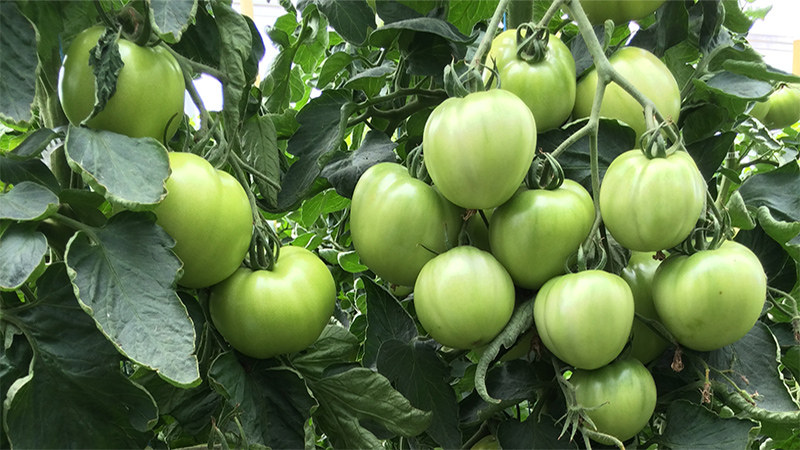Africa’s Food Security Hinges on Access to Technology
Even a modest increase in the transfer of technology and information through the agriculture value chain would increase crop production in Africa tenfold, according to experts who took part in the FCI Trade Summit in May 15-18 in Nairobi, Kenya.
Increasing food productivity is imperative as farmers prepare to double food production to feed more than 9 billion people by 2050, per recommendations by the Food and Agriculture Organization of the United Nations.
Africa, in particular, is facing critical food security challenges as it faces a population boom of its own. Africa’s population grew to 1 billion people last year, doubling between 1982 and 2009. Africa’s population is expected to double again in the next 20 years to 30 years.
Much of the technology required to increase production is already available, yet is not widely disseminated or adopted. For example, only 3% to 5% of African farmers use herbicides regularly, according to a report by the CropLife Research Institute, a division of the CropLife Foundation. Subsequently, African farmers produce some of the poorest yields in the world.
The regular use of herbicides could bolster yields of rice fourfold, and maize yield could rise up to 800%, according to Bill Kuckuck, CEO of the CropLife Foundation.
“Improving weed control is critical to improving crop yields and the lives of women in Africa,” Kuckuck said during a presentation at the FCI Trade Summit in Nairobi.
Women do the majority of hand weeding at small shareholder farms in Africa at a cost of about 60 hours per hectare, or between 50% and 70% of the labor needed on a small shareholder farm. This wastes, valuable labor that could be spent on other agronomic practices that could optimize yields, such as necessary, but often skipped fertility treatments.
The FCI Trade Summit began with a keynote address from Dr. Augustine Langyintuo, policy officer for AGRA, an Alliance for a Green Revolution in Africa. Langyintuo focused on this need for agriculture technology and knowledge to transfer as well asbetter distribution systems.
“There remains a huge capacity for investment in agrochemicals,” he told a capacity crowd at the Laico Regency Hotel in Nairobi. “Agrochemicals are important for driving change … Farmers are getting 1.5-tonne yields (per hectare of maize) and they could be getting 7 tonnes.”
A subsequent policy roundtable discussion included Langyintuo, Gladys Maina of the Crop Protection Products Board, Richard Sikuku of the Agrochemicals Association of Kenya, Stephen Mbithi of the Fresh Produce Exporters Association of Kenya, and Virginia Kimani of the Pesticide and Agricultural Resource Center. It included a lively debate about Kenya’s registration system, farmers’ access to markets, and the availability of credit and financing, among other regional topics. Of particular importance was the topic of the agronomic and economic impact of counterfeit pesticides in Africa.
Distribution Paves the Way To Agriculture Prosperity
Plagued by poor infrastructure and precarious political systems, distribution remains a constant struggle in Africa. A report conducted by the Swedish Institute for Food and Biotechnology and released by the FAO this month reveals that about one-third of all food produced in the world is wasted. In developing economies, much of the spoilage is due to inadequate distribution systems and poor access to markets.
Similarly, farmers fail to adopt agriculture technologies that optimize their yields due to poor distribution of fertilizers, seeds and crop protection products. Additionally, education for the proper use of these technologies, as well as Best Agricultural Practices, must percolate through distribution centers to reach the farm level.
Recently, NGOs have focused on these retail outlets as vehicles for change in Africa. Organizations such as AGRA, CNFA, and IFDC (The International Fertilizer Development Center) have been working to foster entrepreneurship in the agriculture value chain, thereby creating economically sustainable businesses and stability in the agriculture sector. Kenya plays a particularly crucial role in East Africa as the gateway to commerce.
With the regrettable lack of extension services in Africa, CNFA is in the process of standardizing a commercial training program that advises retailers on Best Agriculture Practices, business management, product education and agronomic services for farmers. Discussion around this topic came at an FCI Trade Summit panel discussion. It included Sylvain Roy, CNFA Global VP for Programs, Philip Karuri of IFDC’s Expanding Agro Dealer Networks Program; Patrice Annequin, market information specialist for IFDC’s North and West Africa division; Richard Sikuku, CEO of the Agrochemicals Association of Kenya; CropLife Uganda CEO John Stephen Matovu; and CropLife Ethiopia President Ato Fulassa Sory.
“The challenge and opportunity in Africa is to feed 1 billion people – and 2 billion in 20 years – with safe food,” Annequin added during the panel discussion. “We need to link farmers to agrodealers so we can forecast demand and offer farmers better access to safe inputs at reasonable prices.”
To that end, IFDC used the FCI Trade Summit to formally unveil its Internet-based price-reporting tool for East Africa. The system tracks prices of 50 key crop inputs so farmers can confidently purchase seed, fertilizers and pesticides from local dealers knowing they are paying a fair price.
The FCI Trade Summit will host its other events in Buenos Aires in August and Kuala Lumpur in December. Visit http://www.fcitradesummit.com for more information.





